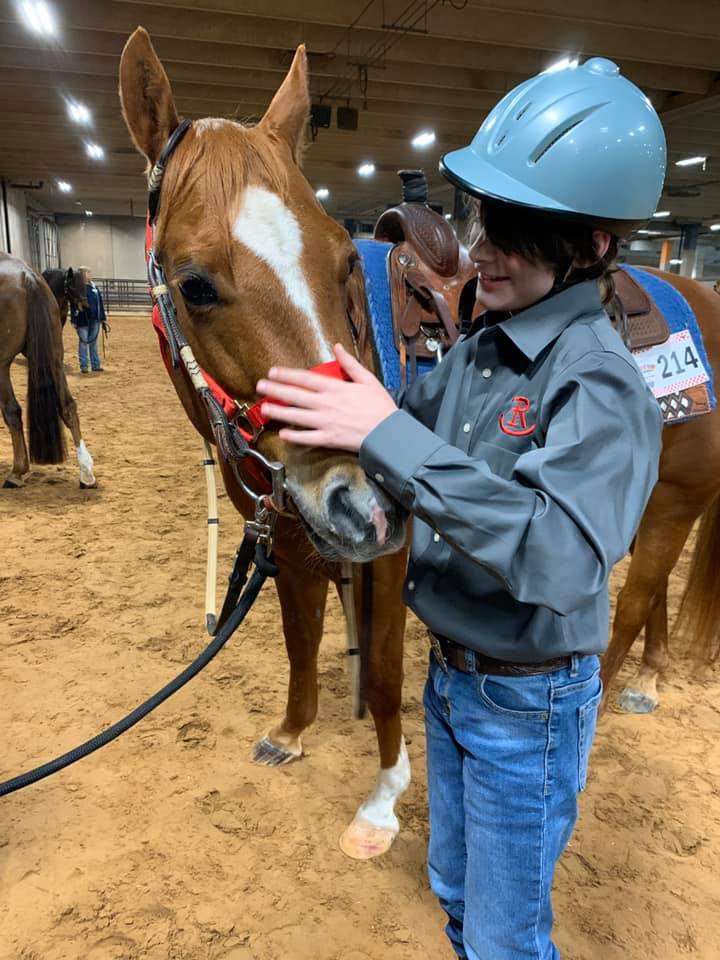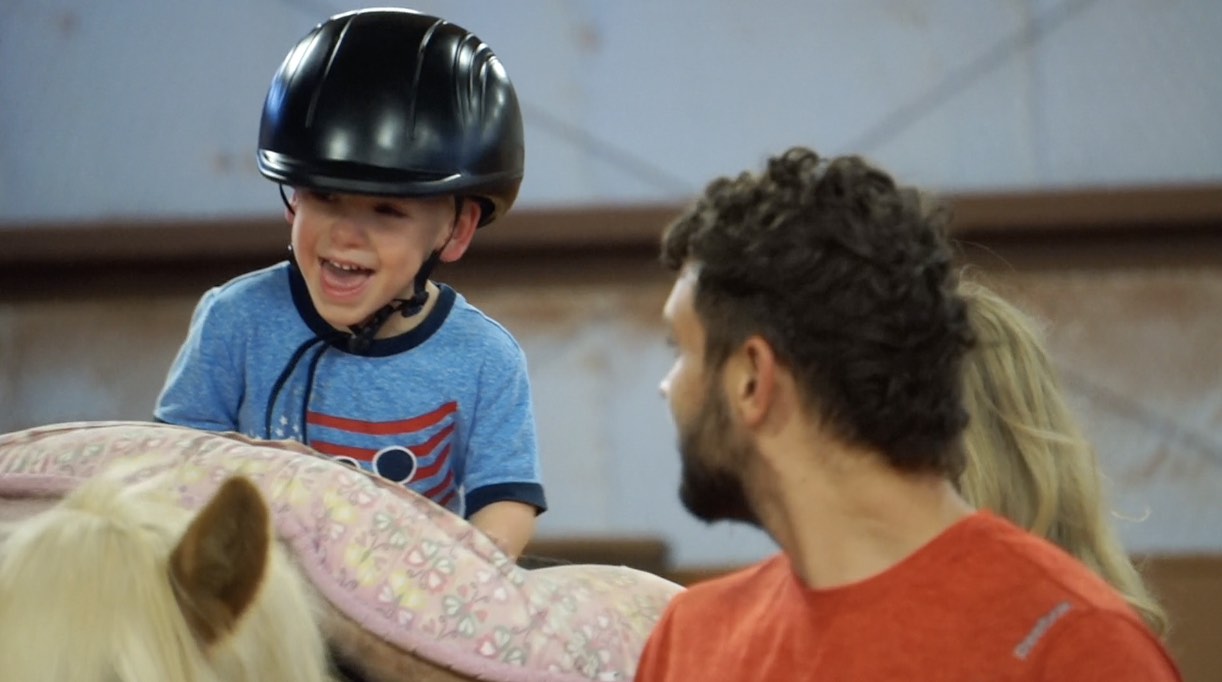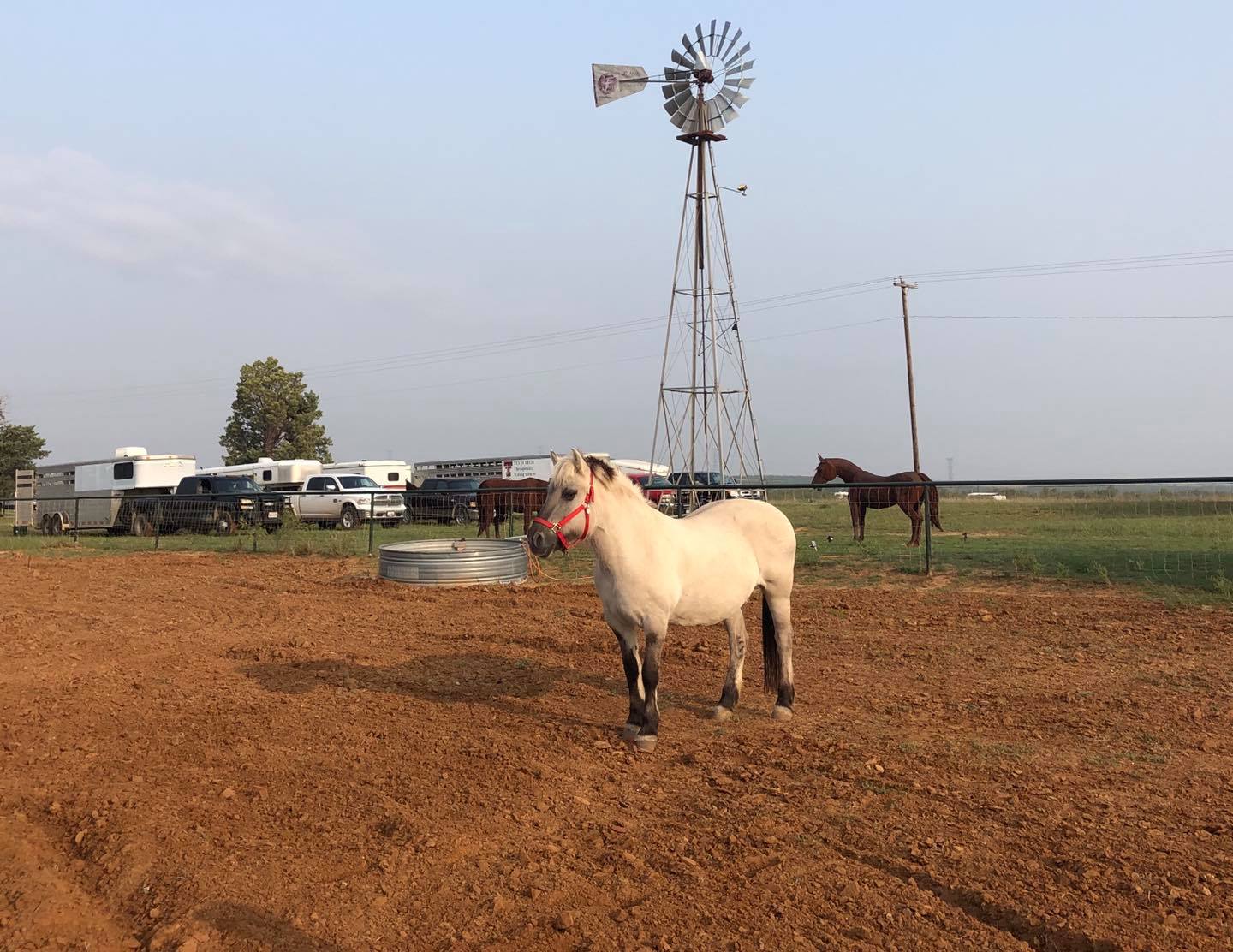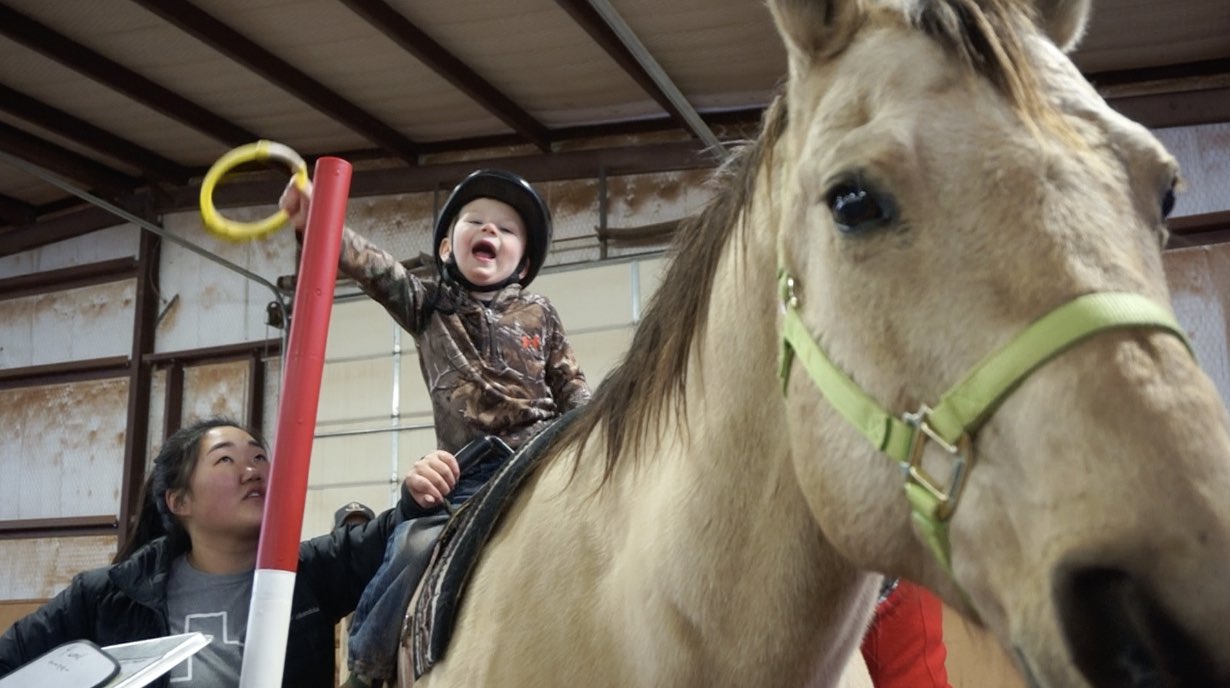FAQ

What is Hippotherapy?
Hippotherapy (Hippos from the Greek word for horse) is a term which refers to the use of the movement of a horse as a treatment tool by trained physical, occupational or speech therapists. To address posture, balance, sensory integration, mobility and function, in children and adults with disabilities, the horse is used as a part of an integrated treatment program to achieve functional outcomes.
Who could benefit from hippotherapy?
Children and adults with mild to severe disabilities in need of physical, occupational or speech therapy can benefit from hippotherapy. Common impairments that are treated with hippotherapy include:

- Abnormal tone
- Impaired balance
- Abnormal reflexes
- Impaired coordination
- Impaired sensory motor function
- Impaired communication
- Postural asymmetry
- Poor postural control
- Decreased mobility
What are the qualifications of hippotherapy staff?
Licensed physical, occupational and speech pathologists that have completed the necessary course work and training process outlined by PATH, Intl. and AHA are trained to utilize horses as a part of their treatment program. PATH, Intl., the governing body for all accredited programs, regulates the training process. This training is in addition to the training they receive in their professional program for physical therapy, occupational therapy or speech language pathology.
What is adaptive horsemanship?
Adaptive horsemanship uses equine assisted activities for the purpose for contributing positively to the cognitive, physical, emotional and social well-being of people with disabilities. Adaptive horsemanship provides benefits in the areas of: therapy, education, sport, recreation and leisure. TTRC plans to provide opportunities for participants to perform their skills ato local and state equestrian competitions.
Who would benefit from adaptive horsemanship?
People with physical, cognitive, emotional and social disabilities may use equine-assisted services—adapted as needed as a recreation and leisure experience. The emphasis is on an enjoyable and relaxing experience that provides additional therapeutic benefits in the areas of socialization, posture, mobility, and an overall improved quality of life. Individuals may participate in horse related activities to their maximum ability in an atmosphere of support, structure, and socialization for the primary purpose of the intrinsic enjoyment of the activity.
What are the qualifications of the therapeutic riding staff?
Adaptive horsemanship is taught by PATH, Intl. certified therapeutic riding instructors. We have one advanced therapeutic riding instructor, and several registered level instructors on staff. Please see the staff bios for more information about the staff.
What are the therapeutic riding center's hours of operation?
TTRC is open Monday through Friday and books appointments from 9:00 a.m. to 7 p.m.
How long are most therapy and therapeutic riding sessions?
Most sessions are 30 minutes to one hour in length depending on the needs of the patient.
Does the rider have to wear a helmet?
Yes. In compliance with PATH, Intl. guidelines, an ASTM-SEI approved helmet will be provided for all clients while on horseback. We will help the clients adjust to wearing a helmet. All of our helmets are ASTM-SEI approved equestrian helmets.
How do I dress for my therapy or therapeutic riding session?
In winter or colder weather, layering clothes works best for staying comfortable. In the summer time, you may wear shorts. Because you will be in a barn, closed toed shoes are a must. If a rider arrives for therapy with open-toed shoes, they will not be allowed to participate in equine assisted activities that day.

Will we ride if the weather is bad?
We do have an enclosed arena, however, there are times that it is not safe for us to ride. Such times include but are not limited to; temperatures below 40 degrees, temperatures above 95 degrees, thunderstorms with lightning, and any other severe weather. We want to look out for everyone involved in sessions, the riders, the horses and the volunteers. If you are unsure about the weather, please call to check.
Do I need to call if I need to cancel an equine-assisted services session?
Because of the nature of our business is so volunteer intensive, we need as much advance notice as possible so that we may cancel volunteers if needed.
Are hippotherapy and adaptive horsemanship covered by insurance?
Hippotherapy is physical therapy, occupational therapy or speech therapy utilizing the horse as a treatment modality; therefore, if your insurance has rehabilitation benefits, therapy sessions may be covered. Our office assistant will be glad to discuss payment options. MHMR, CLASS (South Plains Community Action), and In Home and Family Support also have hippotherapy benefits.
Adaptive horsemanship is not covered by insurance, however, MHMR, CLASS (South Plains Community Action), and In Home and Family Support have therapeutic riding benefits. We also accept private pay. Contact us for lesson pricing.
How do I know which program to choose—hippotherapy or adaptive horsemanship?
Contact our office and we will help you decide which program would serve your needs. If it is hippotherapy, a prescription for physical, occupational or speech therapy utilizing hippotherapy from your physician is required. Therapeutic riding does not require a doctors prescription.
What paperwork do I have to fill out to begin?
Go to the forms sections of our web-site to download appropriate forms. Please note that all riders must have the doctors sign the rider's medical history form stating that there are no medical contraindications for the client to ride a horse. In compliance with PATH, Intl., your prescription and paperwork must be resubmitted annually.
Does TTRC schedule in sessions?
Currently we are open for operation year-round.We schedule equine-assisted therapies in sessions in conjuction with the school semesters; fall, summer and spring. We do close on specific holidays.

Therapeutic Riding Center
-
Address
Texas Tech University, Department of Animal and Food Sciences, Box 42141, Lubbock, TX 79409 -
Phone
806.742.2805 -
Email
tangela.l.arant@ttu.edu


